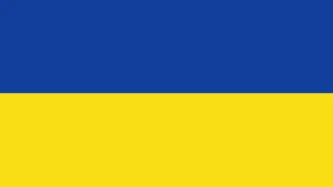Search
Content type: Examples
Data-driven wellbeing audits are becoming common in classrooms in Denmark, which has long invested heavily in digital teaching aids and interactive learning. In the last few decades, depression among Danish children has sextupled, and a quarter of ninth-graders report having attempted self-harm. Platforms such as Woof offer teachers regular feedback based on anonymous self-reports. Similar systems in the US extend to surveilling students' emails, chat, and searches.Experts are concerned that…
Content type: Examples
A study describes the data transmitted to backend servers by the Google/Apple based contact tracing (GAEN) apps in use in Germany, Italy, Switzerland, Austria, and Denmark and finds that the health authority client apps are generally well-behaved from a privacy point of view, although the Irish, Polish, Danish, and Latvian apps could be improved in this respect. However, the study also finds that the Google Play Services component of the apps contacts Google servers as often as every 20 minutes…
Content type: Examples
Ukraine's quarantine measures in order to contain the spread of the coronavirus included prohibiting visits to parks and sports fields, banning gatherings of more than two people, requiring everyone to wear masks and carry ID cards when outside their homes, as well as closing educational institutions, restaurants, cafes, entertainments, and fitness centres. Regional authorities were required to set up border points with mandatory inspections of passing vehicles, and everyone arriving into the…
Content type: Examples
Denmark released 32 prisoners as part of an ongoing review of 10,700 criminal cases, after serious questions arose regarding the reliability of geolocation data obtained from mobile phone operators. Among the various problems with the software used to convert the phone data into usable evidence, it was found that the system connected the phones to several towers at once, sometimes hundreds of kilometres apart, recorded the origins of text messages incorrectly and got the location of specific…
Content type: Examples
In February 2019, after investigative journalists used social media posts to investigate the country's hidden role in conflicts such as those in Ukraine and Syria, Russia began moving to ban its soldiers from posting any information that would expose their whereabouts or their role in the military. The ban would include photographs, video, geolocation data, and other information, and prohibit soldiers from sharing information about other soldiers and their relatives.
https://www.reuters.com/…
Content type: Examples
By 2018, the Danish municipality of Gladsaxe, in Copenhagen, began identifying children at risk of abuse so that flagged families could be targeted for early intervention by applying a set of specially designed algorithms to information already gathered by the centralised Udbetaling Danmark government agency, including health records and employment information, all linked to the personal identification number issued to each Dane at birth. The system raised concerns about mission creep; both the…
Content type: Examples
The two leading Presidential candidates in Ukraine's 2019 elections have expressed frustration at major social media platform's seemingly lack of assistance combatting disinformation and bots. Bots flood social media networks and can promote content or flood platforms with pull requests to have a piece of content taken down. Campaigns are unable to directly contact Google, YouTube, and Facebook for assistance directly and waste resources constantly fighting against bot armies.
https://www.…
Content type: Examples
Facebook's efforts to remove disinformation in the wake of the 2019 Ukrainian Presidential election have so far failed. Politico reports that "Among the Facebook pages that spread spurious claims during the election was one with more than 100,000 followers that ran a video claiming (the Presidential candidate) Zelenskiy will allow Russia to take over the country with a violent military operation. Others portrayed him as a drug addict, or Poroshenko (the other Presidential candidate) as an…
Content type: Examples
Volunteers for Presidential candidate Volodymyr Zelenskiy were tasked with pouring over social media sites to search for disinformation and combat bot armies that spread negative comments about the candidate. Facebook has been slow to take down 'fake news' and so the volunteers search social media sites for such content, and then report it as violating Facebook's terms of service. While Facebook is Ukraine's most popular social media site, Radio Free Europe/Radio Liberty reports that there…
Content type: Key Resources
Ukraine held Presidential elections in April 2019. In the run up to the election, there was much debate on the role of Facebook.
Content type: Examples
In January 2019, Facebook announced it would extend some of the rules and transparency tools it developed for political advertising for upcoming spring elections in Nigeria, Ukraine, India, and the EU. In Nigeria, the site will bar electoral ads from advertisers outside the country where the election is being held, build a searchable library of electoral ads and retaining them for seven years, check the identity of individuals buying political ads against government-issued documents, and…
Content type: News & Analysis
Privacy International (PI) has today written to the Danish Ministry of Foreign Affairs following further concerning reports about the export of internet surveillance equipment from the country.
We are calling for the government to carry out a full re-assessment of the human rights risks associated with the export of such internet surveillance equipment, and to revoke all licenses where there is a risk to human rights or if the law governing surveillance in the destination country is…
Content type: News & Analysis
The reports of Universal Periodic Review (UPR) Working Group for the States under Review at the 24th session in January 2016 were adopted during the last Regular Session of the Human Rights Council, which took place from 13 June to 1 July 2016.
Of the 14 Member States being reviewed, Privacy International with co-submitters presented reports on the right to privacy in Denmark, Paraguay, Belgium, Estonia, Namibia, and Singapore.
The growing number of…
Content type: Advocacy
Privacy International has today written to Danish ministers and authorities seeking urgent assurances following a report published two days ago in Information showing that the government has approved the export of an internet surveillance system to China.
The report, which relies in part on documents obtained from the Danish Business Authority – the department which oversees exports of surveillance technology – shows that the government has authorised a company based in…
Content type: News & Analysis
Privacy International has today written to Danish ministers and authorities seeking urgent assurances following a report published two days ago in Information showing that the government has approved the export of an internet surveillance system to China.
The report, which relies in part on documents obtained from the Danish Business Authority – the department which oversees exports of surveillance technology – shows that the government has authorised a…
Content type: Advocacy
This stakeholder report is a submission by Privacy International (PI) and the IT-Political Association of Denmark. PI is a human rights organisation that works to advance and promote the right to privacy and fight surveillance around the world. PI wishes to bring concerns about the protection and promotion of the right to privacy in Denmark before the Human Rights Council for consideration in Denmark's upcoming Universal Periodic Review.
Content type: Press release
The global watchdog Privacy International has today simultaneously filed complaints against Google's controversial Gmail service with privacy regulators in sixteen countries.
The move creates Google's biggest challenge yet in the short but turbulent public debate over its new email service.
Complaints have been filed with the privacy and data protection regulators of France, Germany, the Netherlands, Greece, Italy, Spain, Czech Republic, Belgium, Denmark, Sweden, Ireland, Portugal, Poland,…









